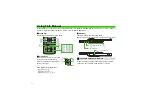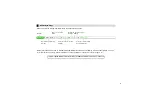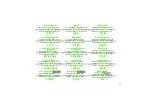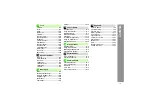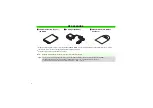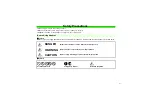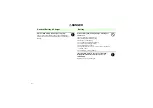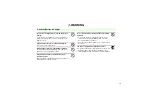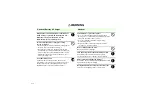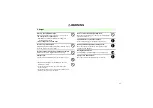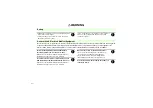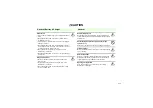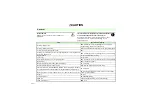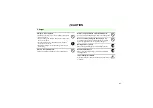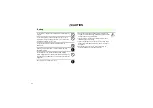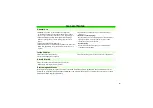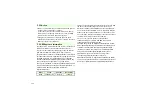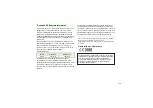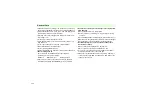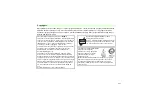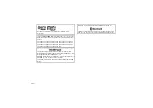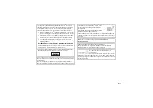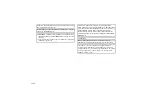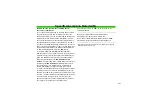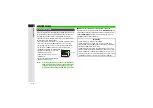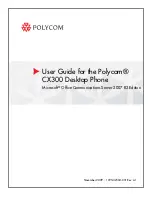
xvi
!
WARNING
#
^
If battery does not charge properly, stop charging. Battery
may overheat, burst or ignite.
^
If there is leakage or abnormal odor, avoid fire sources.
Battery may catch fire or burst.
#
If there is abnormal odor, excessive heat, discoloration or
distortion, remove battery from handset. It may leak,
overheat or explode.
This section is based on "Guidelines on the Use of Radio Communications Equipment such as Cellular Telephones and Safeguards
for Electronic Medical Equipment" (Electromagnetic Compatibility Conference, April 1997) and "Report of Investigation of the
Effects of Radio Waves on Medical Equipment, etc." (Association of Radio Industries and Businesses, March 2001).
#
Persons with implanted pacemaker/defibrillator
should keep handset more than 22 cm away.
Radio waves can interfere with implanted pacemakers or
defibrillators causing such devices to malfunction.
#
Turn handset off in crowds or trains where persons
with implanted pacemaker/defibrillator may be near.
Radio waves can interfere with implanted pacemakers or
defibrillators causing such devices to malfunction.
#
Observe these rules inside medical facilities:
^
Do not enter an operating room or an Intensive or
Coronary Care Unit while carrying a handset.
^
Keep handset off in hospitals, including lobbies.
^
Obey medical facility rules on mobile phone use.
#
Consult electronic medical equipment vendor on
radio wave effects.
Battery
Handset Use & Electronic Medical Equipment

